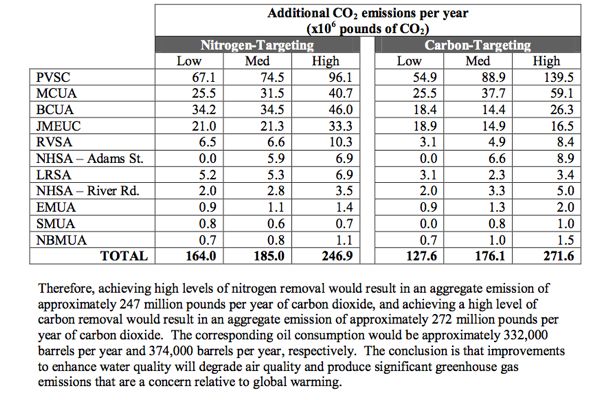The regulatory game is rigged – by and for the polluters and corporations. Period.
Regulatory agencies like the EPA, DEP, and Pinelands Commission do NOT consider or regulate greenhouse gas (GHG) emissions during current environmental permit reviews of major GHG emission sources, like power plants, industrial facilities, pipelines, roads, and new development.
GHG emissions are not regulated under current environmental permit reviews – by EPA or DEP.
The same fatal gap exist with respect to considering the economic impacts of what the economists call “market failure” – “externalities” and “public goods” – that have been quantified in what is known as “the social costs of carbon” (SCC).
NJ DEP has had authority to regulate GHG emissions since 2005, when DEP adopted regulations that defined GHG’s as “air contaminants” (i.e. regulated “pollutants”) under the State Air Pollution Control Act. But DEP has done nothing with this power for almost 10 years now.
EPA’s recent rules on GHG emissions from power plants may soon change that, but only with respect to emissions from power plants. Other sectors and major GHG generating activities and emission sources that require various environmental permits remain unregulated.
And EPA’s application of the “social costs of carbon” (SCC) was limited to the economic impact evaluation, not as a regulatory basis.
For example, the failure to consider GHG emissions was exposed as a egregious flaw in environmental reviews of the South Jersey Gas Co, pipeline to repower the BL England plant.
GHG emissions from the fracked gas distributed by the pipeline, GHG emissions from the pipeline itself, and GHG emissions from burning the gas at the BL England plant itself were not considered and/or regulated by BPU, or by the DEP air quality analysis, or by the Pinelands Commission’s review.
Recently, I learned of a Massachusetts State law that does consider and enable regulation of GHG emissions. The Massachusetts law:
incorporates climate change impacts into environmental review procedures … legislation directs agencies to “consider reasonably foreseeable climate change impacts, including additional greenhouse gas emissions, and effects, such as predicted sea level rise.
NJ has nothing like that Massachusetts law and I’ve seen no evidence that anyone is interested in passing similar legislation in NJ.
So, given this huge failure by federal and state regulators to consider SCC or regulate greenhouse gas emissions during environmental permit reviews, while just now working on an unrelated water quality issue, I was disgusted to read how both EPA and DEP allow major polluters to use increases in GHG emissions.
But the GHG emissions and “SCC” are not considered so that EPA or DEP can regulate and reduce them and use economic harm as a basis to regulate, but rather just the opposite: as a reason to oppose the imposition of new water quality protections.
According to an analysis requested by EPA and prepared by the “NJ Dischargers Group” (a group of sewage treatment plants), new nutrient pollution controls required to protect NJ’s rivers would increase emissions of greenhouse gases:
9.2 Environmental Impacts of Increased Energy Demand
While nutrient removal from wastewater treatment plant discharges may improve the water quality of the Harbor Estuary, it must be recognized that the technologies required to remove nutrients will consume substantial energy, resulting in the increased emission of “greenhouse” gases which has an adverse environmental impact.
So there it is – see the table above. It is obvious and in plain sight – a huge structural bias in regulatory review policies. And note how the polluters quantified the GHG emissions in pounds to make them seem larger.
The NJ HDG analysis, again to magnify GHG emissions, even went so far as to highlight “emergent” issues, something they virtually never do:
Another environmental consideration pertaining to greenhouse gas emission is that carbon- starved denitrification processes have greater potential to release intermediate NxO instead of nitrogen gas. These intermediate NxO gasses have a significantly greater adverse impact from a “greenhouse gas” perspective compared to carbon dioxide (on the order of 200 times that of carbon dioxide). This is an emerging issue in wastewater treatment, and more research is needed to accurately quantify the amount of NxO that could be generated via denitrification.
Given that acknowledgment by the polluters themselves, do you think EPA is in a hurry to regulate GHG emissions from wastewater treatment plants or NxO gasses? Hell no.
GHG emissions can not be considered and used as a basis to modify or deny any environmental permit.
But EPA and DEP are willing to consider GHG emissions as a reason to forego, weaken or delay long over due water quality protections.
The regulatory game is rigged by and for the polluters and corporations. Period.

